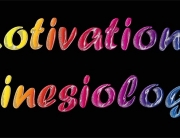Willingness, or as it is sometimes known, psychological reversal, is a conflict between different aspects of the consciousness.
As we are muscle monitoring, a person may say, “I am willing to change“, but there is no indicator muscle response. If we get that person to say, “I am not willing to change” & the indicator muscle unlocks, we then know the person may be switching, sabotaging or suppressing some aspect of their life. This person usually feels they will lose something if they change, (love, attention, status, possessions, approval etc.)
Identifying & correcting this imbalance is always our first priority. If this is not corrected, the person will probably continue these dysfunctional patterns & undermine any positive developments from occurring. If willingness is not addressed, the effectiveness of any healing will be affected.
We have seen people present with a problem that ” no-one can help me with”. After muscle monitoring the willingness statements, we have often uncovered their resistance to change. Clearing any stress around this block has nearly always enabled these people to notice a change in the issue they presented with, eg. sore shoulders eased, headaches gone, breathing improved etc.
A clinical example: In a class demonstration a student, with her arm in a sling, had very little flexibility in her shoulder. After checking & correcting willingness, she was able to move her arm more freely with greater flexibility in her whole upper arm & shoulder area.
Below is the transcript of the ACTUAL radio conversation of a US naval ship with the Canadian authorities off the coast of Newfoundland October 1995. We use it to highlight in a humorous way the efforts of unwillingness.
(Radio conversation released by the Chief of Naval Operations 10-10-95).
Canadians: Please divert your course 15 degrees to the South to avoid a collision.
Americans: Recommend you divert your course 15 degrees to the North to avoid a collision.
Canadians: Negative. You will have to divert your course 15 degrees to the South to avoid a collision.
Americans: This is the Captain of a US Navy ship. I say again, divert YOUR course.
Canadians: No. I say again, you divert YOUR course.
Americans: THIS IS THE AIRCRAFT CARRIER USS LINCOLN. THE SECOND LARGEST SHIP IN THE UNITED STATES’ ATLANTIC FLEET. WE ARE ACCOMPANIED BY THREE DESTROYERS, THREE CRUISERS AND NUMEROUS SUPPORT VESSELS. I DEMAND THAT YOU CHANGE YOUR COURSE 15 DEGREES NORTH, I SAY AGAIN, THAT’S ONE FIVE DEGREES NORTH, OR COUNTERMEASURES WILL BE UNDERTAKEN TO ENSURE THE SAFETY OF THIS SHIP.
Canadians: We are a lighthouse. Your call.
Willingness to change and a willingness to learn or their negative counterparts can be the difference between success and failure in any activity. Knowing how willing you are at any time can be the best self guide to keeping us on track to achieve in any area of human endeavour.
Once we have experienced the feeling of unwillingness it is easier to stay willing. Not sure how to do that, we can help.






Leave A Comment
You must be logged in to post a comment.